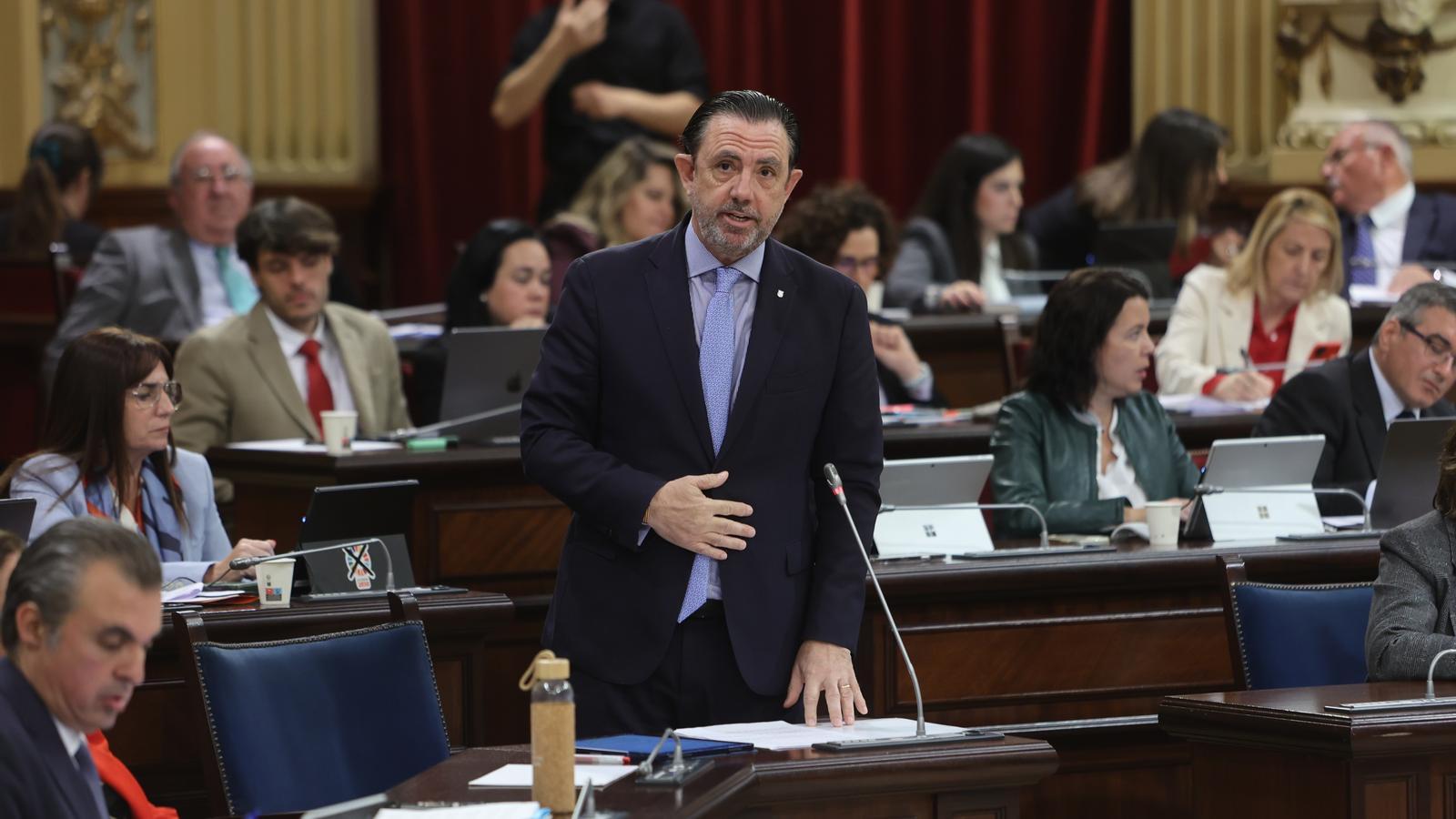The Balearic Industrial Estate Law has been approved.
Sáenz de San Pedro describes the Industrial Estate Law as "necessary and expected," and the left sees "inconsistencies."

PalmThe Industrial Estate Law was approved this Wednesday in the Balearic Parliament, with the favorable votes of the PP, Vox, the non-affiliated deputies, and the abstentions of the left-wing groups. The law, promoted by the PP and Vox, seeks to promote business associations because, according to the Minister of Business, Employment, and Energy, Alejandro Sáenz de San Pedro, of the 53 industrial estates in the Balearic Islands, "very few" have associations that ensure the coordination of companies to contribute and generate value.
Although it was approved with the abstention of the opposition, certain tensions between the groups became evident during the debate, as the left, in general terms, considers the new law to be lukewarm. On the one hand, Sáenz de San Pedro argued that this legislation, officially called the Law on the Management and Modernization of the Balearic Islands' Industrial Promotion Areas, is "necessary, practical, and expected," while the left believes the law presents "inconsistencies and incoherencies" and, furthermore, "lacks courage and falls short."
In the debate defending the regulation held this Wednesday in an extraordinary plenary session, the regional minister emphasized that the law is of "transcendental importance" for the business and economic fabric of the Islands. "Until now, there has been no clear, legal, and specific framework regulating this form of management and development for the modernization of these industrial areas," the minister stated, while emphasizing that the law has been agreed upon and developed with the sector.
Likewise, San Pedro emphasized that one of the "greatest values" of the legislation is, in his opinion, that it is a "flexible law, which provides tools, does not create obstacles, and does not impose." "It allows each industrial estate to find the management model that best suits its needs," he summarized.
However, Socialist MP Marco Guerrero has suspended the law and said that the minister "would have to improve it" and reintroduce it in September. He also detailed inconsistencies in the text, including its reference to a type of collaboration that was later eliminated via an amendment by Vox. He also criticized the elimination of a commission for the competitiveness of industrial promotion areas, also with an amendment by Santiago Abascal's party.
For the Més MP for Menorca, Josep Castells, with the approval of this law, "nothing will change, nor will anything be possible that cannot be done today." "It doesn't do any harm, but it falls short," he said. In his opinion, it's a "very bureaucratic" law, and its biggest shortcoming is that it doesn't encourage public development of industrial land and that it "forgets" about sustainability and waste management.
"It doesn't solve any problems."
Along these lines, MÁS MP for Mallorca, Ferran Rosa, agreed with Castells that the law "doesn't hurt" but that it doesn't "solve any problems" either. For Rosa, the legislation is "poorly drafted" and presents "inconsistencies and problems in the wording." "It will only serve to give the minister credit," she said.
Vox MP Manuela Cañadas defended the need to "eliminate climate dogmas" in the law through the party's only active amendment regarding the repeal of any regulation relating to the implementation of climate policies, which was rejected by the Chamber.
According to Cañadas, the "real obstacle" is the "ideologization" of regulations regarding climate, urban planning, and bureaucracy. "The amendment is a wake-up call so that we don't forget the root of the problem," she noted, asking the PP to "eliminate all traces of the left."
On the other hand, the Popular Party (PP) member Jordi López emphasized the number of amendments introduced to the text during its parliamentary process. "In addition to passing an important law for the future of industry, this Parliament demonstrates that when there is political will, dialogue and collaboration among groups are possible, and results are achieved," he emphasized.
